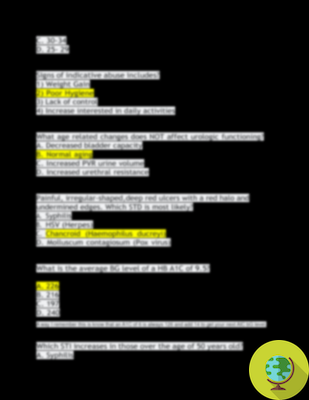
Researchers have identified a potential target to prevent hypoglycemia and protect diabetic patients
Don't store avocado like this: it's dangerousResearchers have identified a potential target to prevent hypoglycemia and protect diabetic patients
A team of search has found a way to help patients to defend themselves from hypoglycemia in diabetes, by enhancing hormonal defense systems. The approach uses a preclinical test compound, R481, to enter the brain and activate AMP-activated protein kinase (AMPK). The results of the studies suggest that the kinase could represent a promising therapeutic target for the development of antiglycemic drugs.
The goal is to create a pill that can be swallowed before going to bed, to preventnocturnal hypoxia. This is only the first step on a long road, the aim of which is to be able to give some peace of mind to people with diabetes and the parents of diabetic children to protect them from nocturnal hypoglycemia. The data obtained reveal, that central AMPK could be a target for the development of drugs for the prevention of hypoglycemia and diabetes.
In all forms of diabetes, blood sugar levels can become too high because the body is unable to make or does not produce enough insulin, or the insulin it produces is not effective. This means that people with diabetes have to manage their blood sugar levels on their own, and these can become dangerously high (hyperglycemia) or low (hypoglycemia). Through this study we want to strengthen the glycemic control, using insulin treatment, which increases the risk of hypoglycemia. Episodes of hypoglycemia often occur at night, disrupting sleep and sometimes causing convulsions. This causes unpleasant symptoms, such as anxiety, palpitations, sweating and hunger; and in extreme cases, it can even cause dizziness, confusion, loss of consciousness and, if left untreated, coma and even death.
Scientific evidence suggests that many people with type 1 diabetes experience an average of two episodes of hypoglycemia per week, and one severe episode per year; while, people with type 2 diabetes experience up to five episodes of hypoglycemia per year. Over the past two decades, scientists have found that AMPK acts as a central component of cellular energy sensing, and plays an important role in regulation of the energetic homeostasis of the whole body through its actions in the hypothalamus and also in the pancreas.
The researchers conducted experiments on neurons that specialize in sensing glucose in the brain (GT1-7 cells), and found that the compound works by activating this brain fuel indicator.
"We evaluated the effect of R481 on glucose homeostasis and used this new compound to test the hypothesis that peripheral administration of a brain-permeable AMPK activator may improve CRR in hypoglycemia."
The results suggested that thepharmacological activation of central AMPK, may be a suitable therapeutic target for boosting defense against hypoglycemia. It will also be interesting to find out whether such drugs, which activate central AMPK, could be used to treat severe hypoglycemia and promote rapid recovery of blood glucose levels.
This research highlights the importance of a better understanding of brain-pancreas communication as the only means of increasing the body's defenses against hypoglycemia.
Follow us on Telegram | Instagram | Facebook | TikTok | Youtube
Photos: Frontiers
Sul diabetes could it be interesting for you:
- Symptoms Diabetes: 4 signs of high blood sugar in your mouth that should not be underestimated
- Diabetes: the best supplement to reduce cholesterol and blood sugar levels by at least a quarter
- Diabetes: This vitamin C-rich drink is best for lowering blood sugar according to a new study
- Diabetes, now for sure! Little sleep also increases the risk of contracting type 2


























